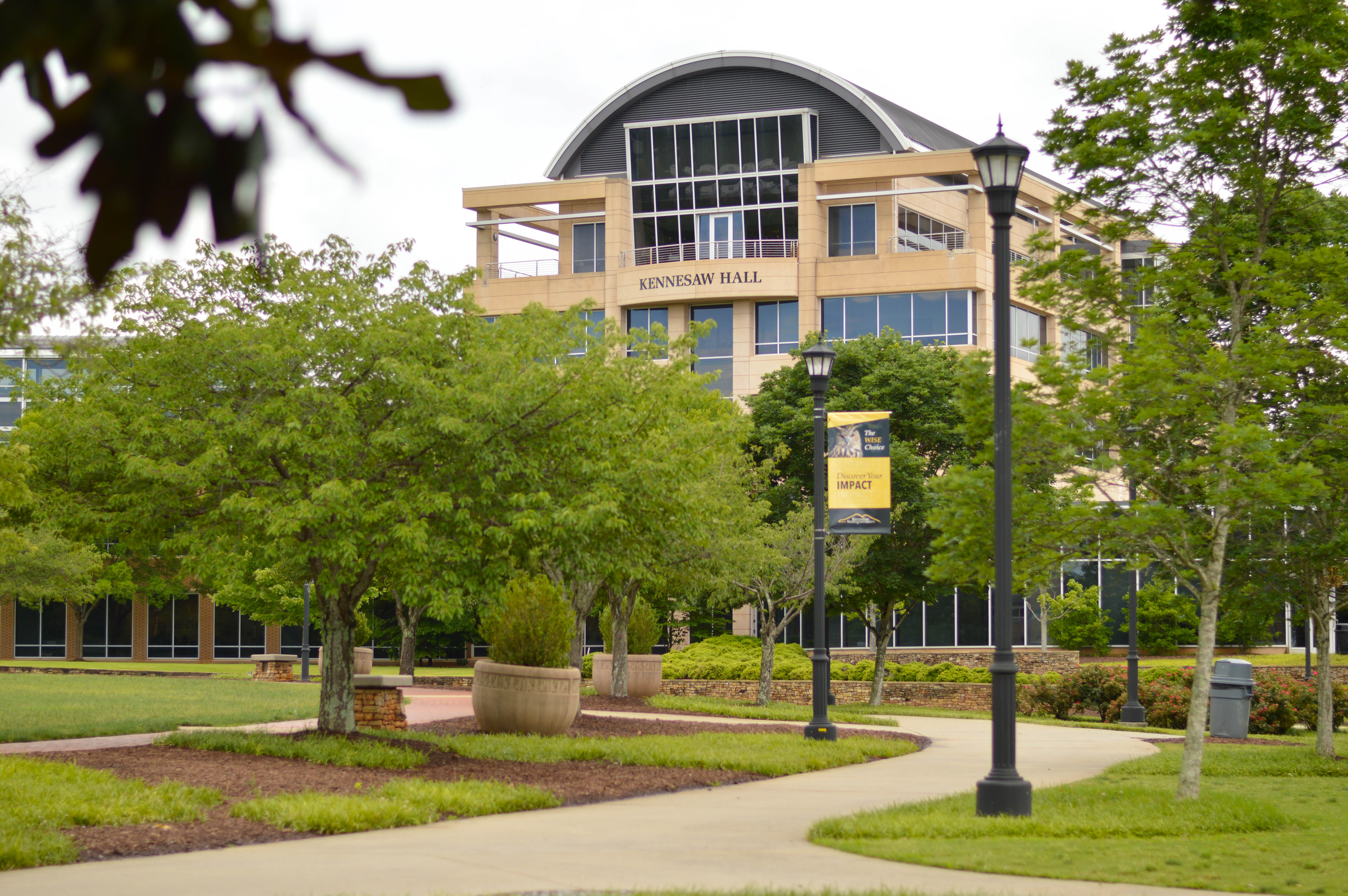The U.S. Department of State continues to name Kennesaw State one of its Diplomacy Lab partners, enabling students and faculty to conduct foreign policy research.
Diplomacy Lab is a partnership between the U.S. Department of State and U.S. colleges and universities. The goal of the partnership is to broaden the research and efforts made in global challenges by involving both faculty and students across the country.
KSU was first accepted into the Diplomacy Lab program two years ago and remains among the 43 colleges and universities participating.
The partnership accepts proposals from institutions to research foreign policy challenges. The proposals must address Diplomacy Lab’s two goals, which are as stated on the Diplomacy Lab’s website, “to engage the American people in the work of diplomacy” and “to broaden the State Department’s research base.”
Faculty members from participating institutions select projects from the accepted proposals each semester. KSU’s Marcus Marktanner, a professor of conflict management and economics, is working with students on a diplomacy project currently.
According to Marktanner, the current project is titled “Data Magic – Capturing Metrics on U.S. Engagement in Panama for Public Diplomacy.” The project entails gathering economic data that shows the relationship between the U.S. and Panama, specifically data of foreign direct investment and scholarships from the U.S. to Panamanians.
“Students will see that successful diplomacy requires sound analytical skills and that acquiring those skills may open the door to wonderful professional careers,” Marktanner said.
KSU’s Uli Ingram, a geospatial sciences lab manager and senior lecturer of geospatial sciences, led a geographical information system (GIS) diplomacy project in the 2021 Fall semester. Students delivered a final presentation of GIS research to State Department officials on Dec. 7, 2021.
Students additionally participated in the Diplomacy Lab Demo Day on Feb. 11, to deliver GIS research to a larger audience. Only three institutions were selected to present.
According to Ingram, the GIS project entailed students from the Department of Geography and Anthropology and the Department of Architecture using GIS software to find ideal locations for future U.S. embassies. The State Department selected a list of cities around the world. Students found ideal embassy locations in 11 of the cities listed.
“The students gave their all while working on this project,” Ingram said. “They have a high work ethic in general, but especially because we had frequent meetings with the planners at the state department, and in the end, we delivered real-world results. The students are now more than ever interested in pursuing a career in geospatial sciences.”
Ingram continues to work on the GIS project this semester with a set of new students. The new students are pinpointing embassy locations in other cities around the globe.
All participating institutions have a designated Diplomacy Lab director who serves as the administrator of projects for the institution. Dr. Sherill Hayes, director of the School of Data Science and Analytics and professor of conflict management, serves as KSU’s Diplomacy Lab director.

